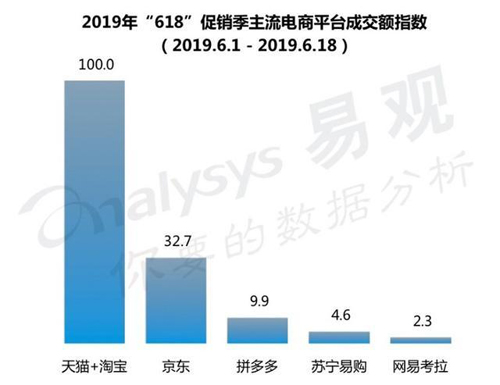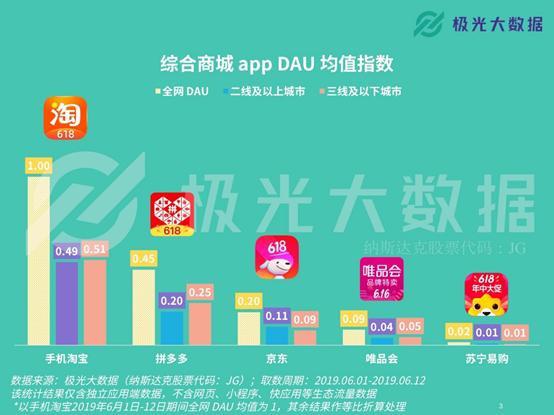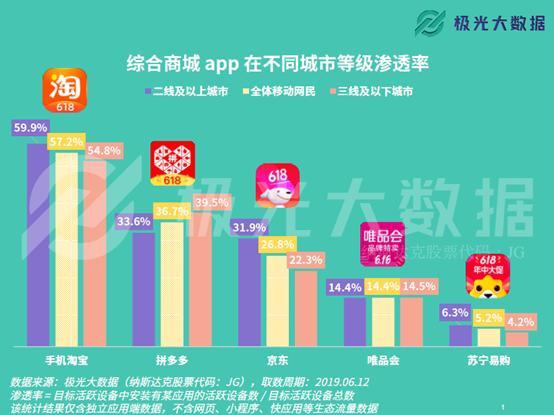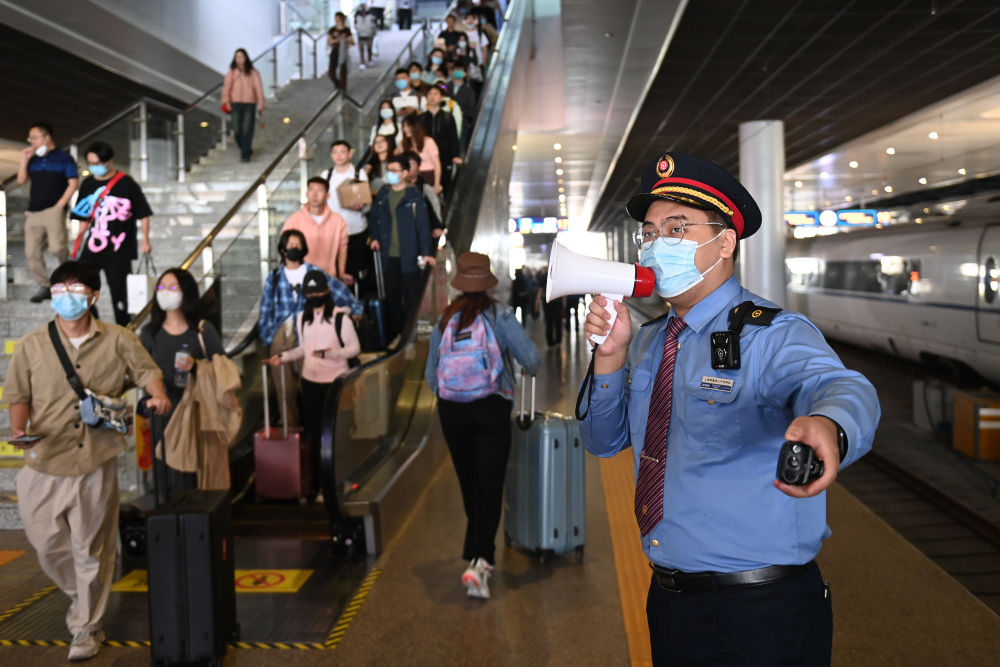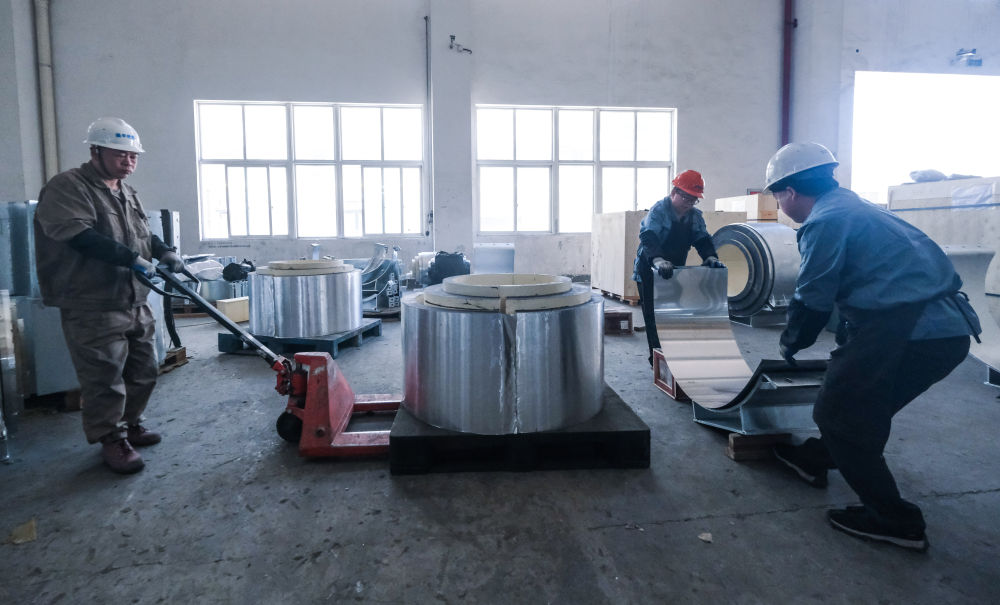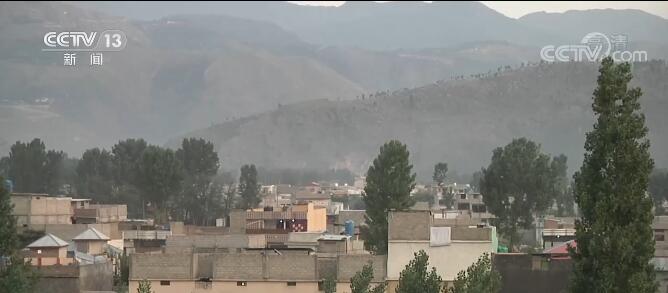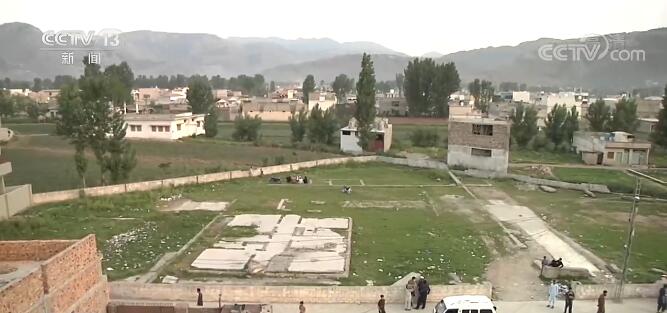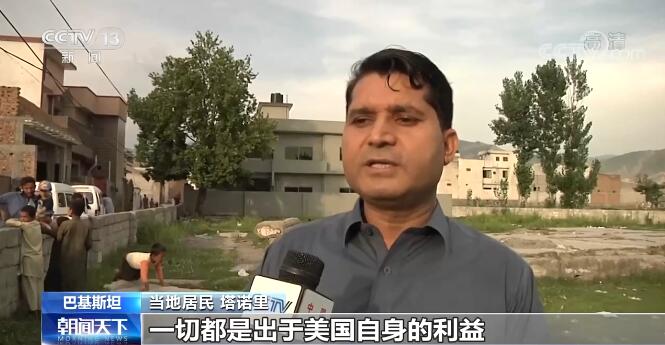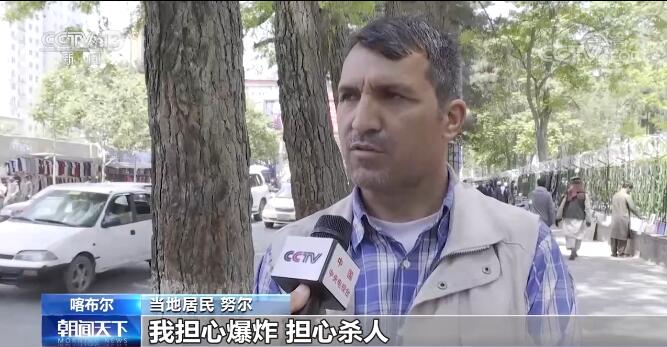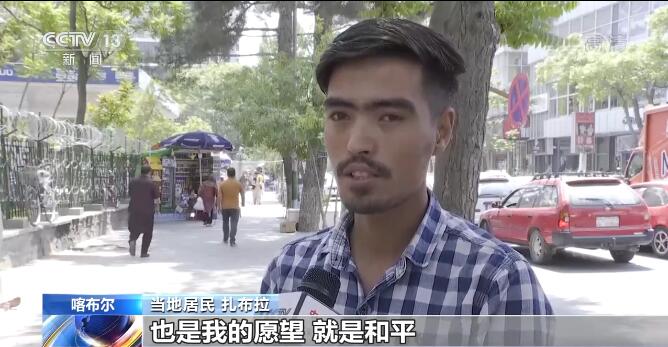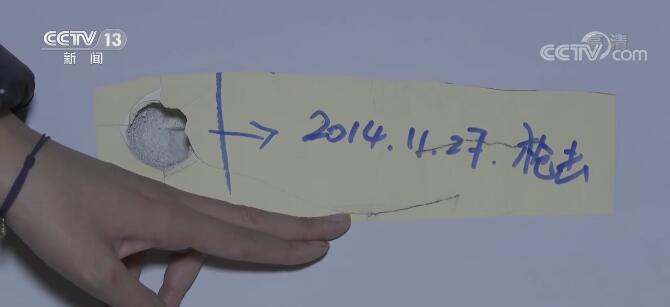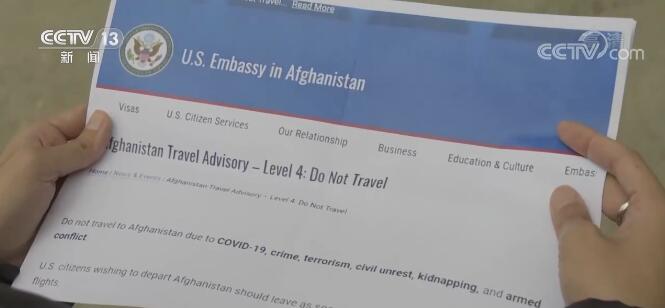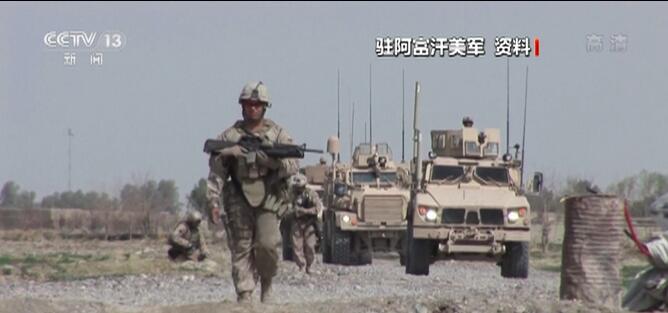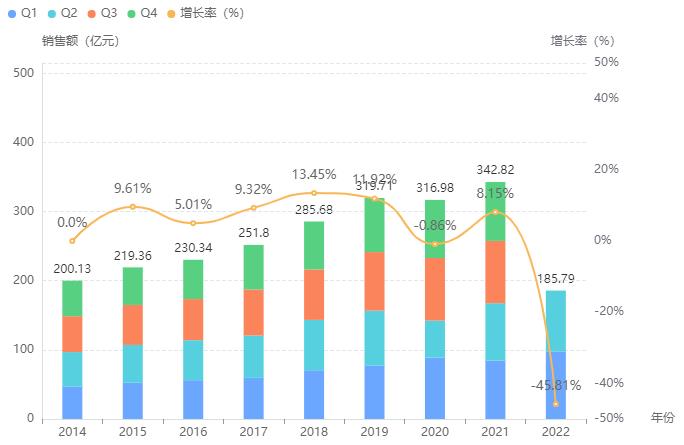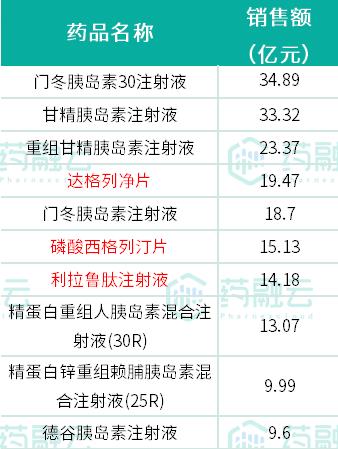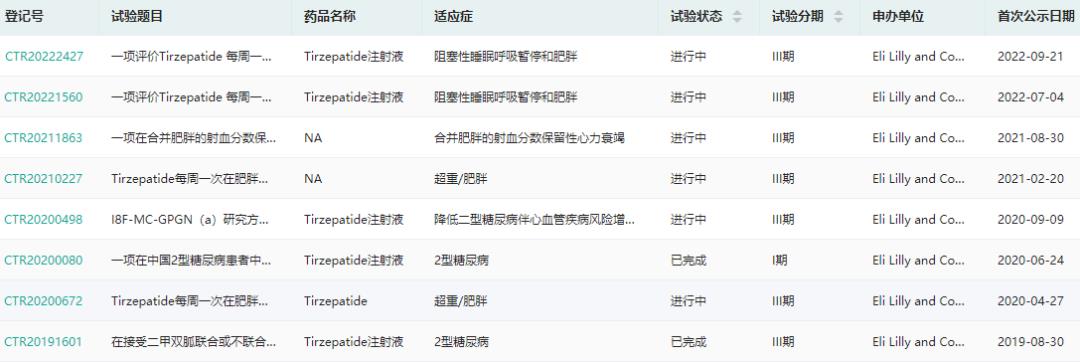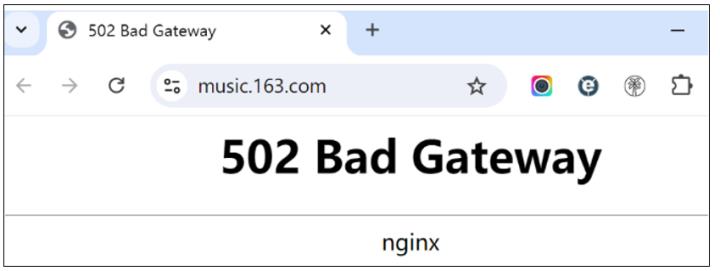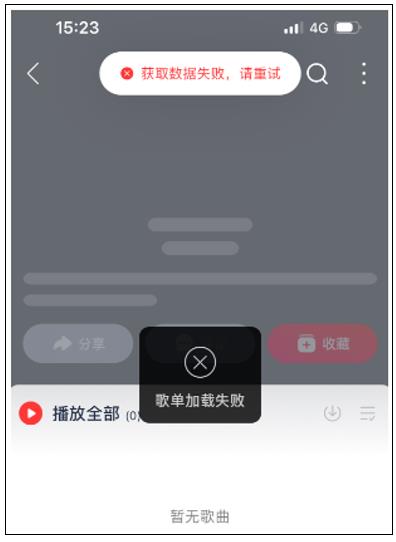decree of the state council of the people’s republic of china
sequence 658 number
The Regulations on the Implementation of the Government Procurement Law of People’s Republic of China (PRC), which was adopted at the 75th executive meeting of the State Council on December 31, 2014, is hereby promulgated and shall come into force as of March 1, 2015.
General manager Li Keqiang
January 30, 2015
Regulations of People’s Republic of China (PRC) Municipality on the Implementation of the Government Procurement Law
Chapter I General Principles
the first According to the People’s Republic of China (PRC) Municipal Government Procurement Law (hereinafter referred to as the Government Procurement Law), these Regulations are formulated.
the second The fiscal funds mentioned in Article 2 of the Government Procurement Law refer to the funds included in the budget management.
Borrowing funds with fiscal funds as repayment sources are regarded as fiscal funds.
Where the procurement projects organized by state organs, institutions and organizations use both fiscal funds and non-fiscal funds, the government procurement law and these regulations shall apply to the part purchased with fiscal funds; Where financial funds and non-financial funds cannot be purchased separately, the Government Procurement Law and these Regulations shall be uniformly applied.
The services mentioned in Article 2 of the Government Procurement Law include services required by the government itself and public services provided by the government to the public.
Article The centralized procurement catalogue includes centralized procurement projects of institutions and centralized procurement projects of departments.
Projects with uniform standards of technology and services and commonly used by purchasers are listed as procurement projects of centralized procurement institutions; Items that the purchaser has special requirements for the department and the system based on business needs and can be purchased in a unified way are listed as departmental centralized procurement items.
Article 4 The term "centralized procurement" as mentioned in the government procurement law refers to the act that the purchaser entrusts the centralized procurement agency to purchase the projects listed in the centralized procurement catalogue or conducts centralized procurement by departments; The so-called decentralized procurement refers to the behavior of the purchaser to purchase the items above the procurement limit that are not listed in the centralized procurement catalogue by himself or entrust a procurement agency to purchase on his behalf.
Article 5 The people’s governments of provinces, autonomous regions and municipalities directly under the Central Government or their authorized institutions may, according to the actual situation, determine the centralized procurement catalogue and procurement quota standards that are respectively applicable to the provinces, districts, cities and counties in their respective administrative regions.
Article 6 The financial department of the State Council shall, in accordance with the national economic and social development policies, formulate government procurement policies jointly with relevant departments of the State Council, and achieve the goals of saving energy, protecting the environment, supporting underdeveloped areas and ethnic minority areas, and promoting the development of small and medium-sized enterprises through measures such as formulating procurement demand standards, reserving procurement shares, preferential price evaluation, and giving priority to procurement.
Article 7 Government procurement projects and goods and services related to project construction, which are purchased by means of bidding, shall be governed by the Bidding Law of People’s Republic of China (PRC) and its implementing regulations; Procurement by other means shall be governed by the Government Procurement Law and these Regulations.
The project mentioned in the preceding paragraph refers to construction projects, including the new construction, reconstruction and expansion of buildings and structures and their related decoration, demolition and repair; The goods related to the project construction refer to the equipment and materials that constitute an integral part of the project and are necessary to realize the basic functions of the project; The services related to the project construction refer to the services such as survey, design and supervision required for the completion of the project.
Government procurement projects and goods and services related to project construction shall implement the government procurement policy.
Article 8 Government procurement project information shall be published in the media designated by the financial department of the people’s government at or above the provincial level. If the budget amount of procurement projects reaches the standard set by the financial department of the State Council, the information of government procurement projects shall be published in the media designated by the financial department of the State Council.
Article 9 In government procurement activities, if the purchaser and related personnel have one of the following interests with the supplier, they should avoid it:
(1) Having labor relations with suppliers within 3 years before participating in procurement activities;
(2) Being a director or supervisor of a supplier within 3 years before participating in procurement activities;
(3) Being the controlling shareholder or actual controller of the supplier within 3 years before participating in procurement activities;
(4) Having husband and wife, lineal blood relatives, collateral blood relatives within three generations or close in-laws with the legal representative or person in charge of the supplier;
(five) there are other relationships with suppliers that may affect the fairness and impartiality of government procurement activities.
If the supplier believes that the purchaser and related personnel have an interest relationship with other suppliers, he may submit a written application for withdrawal to the purchaser or procurement agency, and explain the reasons. The purchaser or procurement agency shall promptly ask the applicant for withdrawal, and the interested applicant shall withdraw.
Article 10 The state implements unified standards for the construction of electronic trading platforms for government procurement, and promotes the use of information networks for electronic government procurement activities.
Chapter II Parties to Government Procurement
Article 11 In government procurement activities, purchasers should safeguard national interests and social public interests, be fair and honest, be honest and trustworthy, implement government procurement policies, establish internal management systems for government procurement, practise economy, and scientifically and reasonably determine procurement requirements.
The purchaser shall not ask or accept gifts, kickbacks or other goods and services unrelated to the procurement from the supplier.
Article 12 The procurement agency mentioned in the government procurement law refers to centralized procurement agencies and procurement agencies other than centralized procurement agencies.
The centralized procurement institution is a non-profit enterprise legal person established by the people’s government at or above the municipal level with districts according to law, and it is the executing agency for centralized procurement projects. Centralized procurement institutions shall formulate the implementation plan of centralized procurement projects according to the entrustment of the purchaser, clarify the procurement procedures, organize government procurement activities, and shall not delegate centralized procurement projects. Procurement agencies other than centralized procurement agencies are social intermediaries engaged in procurement agency business.
Article 13 The procurement agency shall establish a sound internal supervision and management system for government procurement, and have the evaluation conditions and facilities required for conducting government procurement business.
The procurement agency shall improve the professional service level of determining procurement demand, preparing bidding documents, negotiation documents and inquiry notices, drafting contract texts and optimizing procurement procedures, organize the purchaser to sign government procurement contracts with the suppliers who have won the bid or clinched the deal within the specified time according to the entrustment of the purchaser, and assist the purchaser to check and accept the procurement projects in time.
Article 14 Procurement agencies shall not obtain government procurement agency business by improper means, and shall not maliciously collude with purchasers and suppliers to manipulate government procurement activities.
The staff of a procurement agency shall not accept banquets, tours or entertainments organized by purchasers or suppliers, or accept gifts, cash, securities, etc., or reimburse the purchasers or suppliers for expenses that should be borne by individuals.
Article 15 The purchaser and the procurement agency shall prepare the procurement documents according to the government procurement policy, procurement budget and procurement demand.
The procurement demand shall meet the requirements of technology, service and safety stipulated by laws and regulations and government procurement policies. The public service projects provided by the government to the public shall solicit the opinions of the public on determining the procurement demand. Unless the detailed specifications or specific requirements cannot be determined due to technical complexity or special nature, the procurement requirements shall be complete and clear. When necessary, the opinions of relevant suppliers and experts shall be sought for determining the procurement demand.
Article 16 The principal-agent agreement stipulated in Article 20 of the Government Procurement Law shall specify the scope, authority and duration of agency procurement and other specific matters.
The purchaser and the procurement agency shall perform their respective obligations in accordance with the agency agreement, and the procurement agency shall not exceed the agency authority.
Article 17 Suppliers participating in government procurement activities shall meet the conditions stipulated in the first paragraph of Article 22 of the Government Procurement Law and provide the following materials:
(a) the business license of the legal person or other organization and other supporting documents, and the identity certificate of the natural person;
(two) financial status report, relevant materials to pay taxes and social security funds according to law;
(3) Proof that it has the necessary equipment and professional technical ability to perform the contract;
(four) a written statement that there is no major illegal record in the business activities within 3 years before participating in government procurement activities;
(5) Certification materials that meet other conditions as prescribed by laws and administrative regulations.
If the procurement project has special requirements, the supplier shall also provide the certification materials or explanations of the situation that meet the special requirements.
Article 18 The person in charge of the unit is the same person or different suppliers with direct holding and management relations, and may not participate in government procurement activities under the same contract.
Except for single-source procurement projects, suppliers who provide overall design, specification preparation or project management, supervision and testing services for the procurement projects shall not participate in other procurement activities of the procurement projects.
Article 19 The major illegal record mentioned in Item 5, Paragraph 1 of Article 22 of the Government Procurement Law refers to the administrative punishment such as the criminal punishment or the order to stop production or business, the revocation of the license or license, and a relatively large fine imposed on the supplier for illegal business.
Suppliers are prohibited from participating in government procurement activities within a certain period of time due to illegal business operations within three years before participating in government procurement activities. If the period expires, they can participate in government procurement activities.
Article 20 In any of the following circumstances, the purchaser or the procurement agency shall treat the supplier differently or discriminately under unreasonable conditions:
(1) Providing suppliers with different project information for the same procurement project;
(2) The qualifications, technology and business conditions set are not suitable for the specific characteristics and actual needs of the procurement project or have nothing to do with the performance of the contract;
(3) The technical and service requirements in the procurement demand point to specific suppliers and products;
(4) Taking the achievements and awards of a specific administrative region or a specific industry as the conditions for extra points or winning the bid or closing the transaction;
(five) adopt different qualification examination or evaluation standards for suppliers;
(6) Limiting or designating specific patents, trademarks, brands or suppliers;
(seven) illegally limiting the ownership form, organization form or location of suppliers;
(eight) to restrict or exclude potential suppliers by other unreasonable conditions.
Article 21 Where the purchaser or procurement agency prequalifies the supplier, the prequalification announcement shall be published in the media designated by the financial department of the people’s government at or above the provincial level. If the pre-qualification has been conducted, the supplier qualification can no longer be reviewed in the review stage. If the pre-qualified supplier’s qualification changes during the review stage, it shall notify the purchaser and the procurement agency.
The prequalification announcement shall include the name of the purchaser and the procurement project, the procurement demand, the qualification requirements for the supplier, and the time and place when the supplier submits the prequalification application documents. The time for submitting pre-qualification application documents shall not be less than 5 working days from the date of announcement.
Article 22 If suppliers with similar qualifications in the consortium undertake the same work according to the division of labor of the consortium, the qualification grade shall be determined according to the suppliers with lower qualification grade.
Where a consortium participates in government procurement activities, the parties to the consortium shall not participate in government procurement activities under the same contract alone or in another consortium with other suppliers.
Chapter III Methods of Government Procurement
Article 23 If the purchaser purchases goods or services above the standard of public bidding amount, which meets the provisions of Articles 29, 30, 31 and 32 of the Government Procurement Law, or it is necessary to implement government procurement policies and other special circumstances, with the approval of the financial department of the people’s government at or above the municipal level with districts, the procurement method other than public bidding can be adopted according to law.
Article 24 If the projects listed in the centralized procurement catalogue are suitable for batch centralized procurement, they shall be subject to batch centralized procurement, except for emergency small and sporadic goods projects and services and engineering projects with special requirements.
Article 25 If the government procurement project is not subject to tender according to law, it shall be procured by competitive negotiation or single-source procurement as stipulated in the Government Procurement Law and these Regulations.
Article 26 The circumstances specified in Item 3 of Article 30 of the Government Procurement Law shall be unforeseeable by the purchaser or not caused by the purchaser’s delay; The circumstances specified in the fourth paragraph refer to the failure to calculate the total price in advance due to the purchase of works of art, patents, proprietary technology or the uncertainty of the time and quantity of services in advance.
Article 27 The situation stipulated in the first paragraph of Article 31 of the Government Procurement Law refers to the fact that goods or services can only be purchased from a specific supplier because of the use of irreplaceable patents and proprietary technologies or the special requirements of public service projects.
Article 28 In a fiscal year, if the purchaser purchases goods and services of the same item or category under a budget item for many times by means other than public bidding, and the accumulated amount of funds exceeds the standard of public bidding amount, it is a way to avoid public bidding by breaking up the whole into parts, except that the project budget is adjusted or the procurement is approved by means other than public bidding.
Chapter IV Government Procurement Procedures
Article 29 The purchaser shall prepare the government procurement implementation plan according to the centralized procurement catalogue, the procurement quota standard and the approved departmental budget, and report it to the financial department of the people’s government at the same level for the record.
Article 30 The purchaser or procurement agency shall disclose the budget amount of the procurement project in the tender documents, negotiation documents and inquiry notice.
Article 31 The provision period of the tender documents shall not be less than 5 working days from the date when the tender documents are issued.
The purchaser or procurement agency may make necessary clarifications or modifications to the issued bidding documents. If the clarification or modification may affect the preparation of bidding documents, the purchaser or procurement agency shall notify all potential bidders who have obtained the bidding documents in writing at least 15 days before the deadline for bidding; If it is less than 15 days, the purchaser or procurement agency shall postpone the deadline for submission of bid documents.
Article 32 The purchaser or procurement agency shall prepare the tender documents in accordance with the standard text of the tender documents formulated by the finance department of the State Council.
The tender documents shall include the commercial conditions, procurement requirements, qualifications of bidders, bid quotation requirements, bid evaluation methods, bid evaluation standards and the text of the contract to be signed.
Article 33 If the tender documents require bidders to submit a bid bond, the bid bond shall not exceed 2% of the budgeted amount of the procurement project. The bid bond shall be submitted in non-cash form such as cheque, bill of exchange, promissory note or letter of guarantee issued by financial institutions and guarantee institutions. If the bidder fails to submit the bid bond in accordance with the requirements of the tender documents, the bid is invalid.
The purchaser or procurement agency shall return the bid bond of the unsuccessful supplier within 5 working days from the date of issuing the bid-winning notice, and the bid bond of the successful supplier within 5 working days from the date of signing the government procurement contract.
Where the supplier participating in the negotiation or inquiry is required to submit a deposit in competitive negotiation or inquiry procurement, the provisions of the preceding two paragraphs shall apply mutatis mutandis.
Article 34 The evaluation methods of government procurement bidding are divided into the lowest evaluation price method and the comprehensive evaluation method.
The lowest bid evaluation method refers to the bid evaluation method in which the tender documents meet all the substantive requirements of the tender documents and the supplier with the lowest bid price is the candidate for winning the bid. Comprehensive evaluation method refers to the bid evaluation method that the bidding documents meet all the substantive requirements of the bidding documents and the supplier with the highest score is the candidate for winning the bid according to the quantitative indicators of the evaluation factors.
The lowest bid evaluation method shall be adopted for goods and services with uniform standards such as technology and services.
If the comprehensive scoring method is adopted, the score setting in the evaluation criteria should correspond to the quantitative indicators of the evaluation factors.
The evaluation criteria not specified in the tender documents shall not be used as the basis for evaluation.
Article 35 If the negotiation documents can’t completely and clearly list the procurement requirements, and the suppliers need to provide the final design scheme or solution, after the negotiation, the negotiating team shall vote and recommend the design schemes or solutions of more than three suppliers according to the principle that the minority is subordinate to the majority, and ask them to submit the final quotation within the specified time.
Article 36 The notice of inquiry shall determine the terms of the government procurement contract according to the procurement demand. In the process of inquiry, the inquiry team shall not change the terms of the government procurement contract determined in the inquiry notice.
Article 37 The equality of quality and service mentioned in Item 5 of Article 38 and Item 4 of Article 40 of the Government Procurement Law means that the product quality and service provided by the supplier can meet the substantive requirements specified in the procurement documents.
Article 38 Meet the standard of open tender amount, in line with the provisions of the first paragraph of Article 31 of the Government Procurement Law, and can only purchase from a sole supplier, the purchaser shall publicize the information of the procurement project and the name of the sole supplier in the media designated by the financial department of the people’s government at or above the provincial level, and the publicity period shall not be less than 5 working days.
Article 39 In addition to the provisions of the the State Council municipal finance department, the purchaser or procurement agency shall randomly select the evaluation experts from the government procurement evaluation expert database.
Article 40 Government procurement review experts shall abide by the review work discipline and shall not disclose the review documents, the review situation and the business secrets learned during the review.
The bid evaluation committee, the competitive negotiation team or the inquiry team shall report to the financial department in a timely manner if they find that the supplier has committed illegal acts such as bribery, providing false materials or colluding.
Government procurement review experts who are illegally interfered in the review process shall promptly report to the finance and supervision departments.
Article 41 The members of the bid evaluation committee, the competitive negotiation team or the inquiry team shall conduct independent evaluation in accordance with the principles of objectivity, impartiality and prudence, and according to the evaluation procedures, evaluation methods and evaluation standards stipulated in the procurement documents. If the contents of procurement documents violate the relevant mandatory provisions of the state, the bid evaluation committee, competitive negotiation team or inquiry team shall stop the evaluation and explain the situation to the purchaser or procurement agency.
Members of the bid evaluation committee, competitive negotiation team or inquiry team shall sign the evaluation report and bear legal responsibility for their own evaluation opinions. If there is any objection to the review report, it shall sign different opinions on the review report and explain the reasons, otherwise it shall be deemed as agreeing to the review report.
Article 42 The purchaser and procurement agency shall not make tendentious and misleading explanations or explanations to the evaluation experts of the bid evaluation committee, competitive negotiation team or inquiry team.
Article 43 The procurement agency shall send the review report to the purchaser within 2 working days from the end of the review. The purchaser shall, within 5 working days from the date of receiving the evaluation report, determine the successful bidder or the successful supplier in sequence among the successful bidder or the successful bidder recommended by the evaluation report.
The purchaser or procurement agency shall, within 2 working days from the date of determining the supplier who won the bid and clinched the deal, issue a notice of winning the bid and clinched the deal, and announce the result of winning the bid and clinched the deal in the media designated by the financial department of the people’s government at or above the provincial level. The tender documents, competitive negotiation documents and inquiry notice shall be announced at the same time with the result of winning the bid and clinched the deal.
The contents of the announcement of the bid-winning and transaction results shall include the names, addresses and contact information of the purchaser and the procurement agency, the project name and project number, the name and address of the bid-winning or transaction supplier and the bid-winning or transaction amount, the name, specifications, quantity, unit price, service requirements and the list of evaluation experts of the main bid-winning or transaction targets.
Article 44 Except as stipulated by the financial department of the State Council, the purchaser and the procurement agency shall not organize re-evaluation for any reason. Where a purchaser or procurement agency organizes a re-evaluation in accordance with the provisions of the financial department of the State Council, it shall report in writing to the financial department of the people’s government at the corresponding level.
The purchaser or procurement agency shall not change the evaluation results by testing samples or inspecting suppliers.
Article 45 The purchaser or procurement agency shall, in accordance with the technical, service and safety standards stipulated in the government procurement contract, organize the acceptance of the supplier’s performance and issue an acceptance letter. The acceptance letter shall include the performance of each technology, service and safety standard.
The public service projects provided by the government to the public shall invite the clients to participate in the acceptance and issue opinions, and the acceptance results shall be announced to the public.
Article 46 The procurement documents stipulated in Article 42 of the Government Procurement Law may be kept in electronic files.
Chapter V Government Procurement Contracts
Article 47 The financial department of the State Council shall, jointly with the relevant departments of the State Council, formulate the standard text of government procurement contracts.
Article 48 If the procurement documents require the supplier who wins the bid or clinches the deal to submit the performance bond, the supplier shall submit it in non-cash form such as check, draft, promissory note or letter of guarantee issued by financial institutions and guarantee institutions. The amount of the performance bond shall not exceed 10% of the amount of the government procurement contract.
Article 49 If the supplier who won the bid or clinched a deal refuses to sign a contract with the purchaser, the purchaser can sort the list of candidates who won the bid or clinched a deal recommended by the evaluation report, determine the next candidate as the supplier who won the bid or clinched a deal, or restart government procurement activities.
Article 50 The purchaser shall, within 2 working days from the date of signing the government procurement contract, announce the government procurement contract in the media designated by the financial department of the people’s government at or above the provincial level, except for the contents involving state secrets and commercial secrets in the government procurement contract.
Article 51 The purchaser shall, in accordance with the provisions of the government procurement contract, pay the procurement funds to the supplier who wins the bid or clinches the deal in time.
The procedures for the payment of funds for government procurement projects shall be implemented in accordance with the relevant provisions of the state on the management of financial funds payment.
Chapter VI Queries and Complaints
Article 52 The purchaser or procurement agency shall, within 3 working days, reply to the inquiries made by the supplier according to law.
If the inquiry or query raised by the supplier is beyond the scope authorized by the purchaser to the procurement agency, the procurement agency shall inform the supplier to raise it with the purchaser.
Government procurement review experts shall cooperate with the purchaser or procurement agency to answer the supplier’s inquiries and questions.
Article 53 The date when the supplier should know that his rights and interests are damaged as stipulated in Article 52 of the Government Procurement Law refers to:
(1) If the procurement documents that can be questioned are questioned, it shall be the date of receipt of the procurement documents or the date of expiration of the announcement period of the procurement documents;
(2) If the procurement process is questioned, it shall be the date when each procurement procedure link ends;
(3) If the bid-winning or transaction result is questioned, it shall be the date when the announcement period of the bid-winning or transaction result expires.
Article 54 If the inquiry or question may affect the result of winning the bid and closing the transaction, the purchaser shall suspend the signing of the contract, and if the contract has been signed, the performance of the contract shall be suspended.
Article 55 The supplier’s queries and complaints shall have clear requests and necessary supporting materials. The matters complained by the supplier shall not exceed the scope of the questioned matters.
Article 56 The financial department shall handle the complaints in the form of written examination, and may conduct investigation and evidence collection or organize cross-examination when necessary.
For the investigation and evidence collection conducted by the financial department according to law, the complainant and the parties concerned with the complaint shall truthfully reflect the situation and provide relevant materials.
Article 57 If the complainant fabricates facts, provides false materials or obtains proof materials by illegal means to make a complaint, the financial department shall reject it.
After the financial department accepts the complaint, if the complainant applies in writing to withdraw the complaint, the financial department shall terminate the complaint handling procedure.
Article 58 If the financial department needs inspection, testing, appraisal, expert review and the complainant’s supplementary materials when handling complaints, the time required shall not be counted in the complaint handling period.
The decision made by the financial department on the handling of complaints shall be announced in the media designated by the financial department of the people’s government at or above the provincial level.
Chapter VII Supervision and Inspection
Article 59 The procurement standards of government procurement projects mentioned in Article 63 of the Government Procurement Law refer to the budget standards, asset allocation standards, technology and service standards on which project procurement is based.
Article 60 In addition to the assessment items stipulated in Article 66 of the Government Procurement Law, the assessment items of centralized procurement institutions by the financial department also include:
(a) the implementation of government procurement policies;
(two) the level of procurement documents;
(three) the implementation of procurement methods and procedures;
(four) to ask and question the reply;
(five) the construction and implementation of internal supervision and management system;
(six) other matters stipulated by the financial department of the people’s government at or above the provincial level.
The financial department shall formulate an assessment plan, regularly assess the centralized procurement institutions, and report to the people’s government at the corresponding level if the assessment results are important.
Article 61 If the purchaser finds that the procurement agency has violated the law, he shall ask it to correct it. If the procurement agency refuses to make corrections, the purchaser shall report to the financial department of the people’s government at the corresponding level, and the financial department shall handle it according to law.
If the procurement agency finds that the purchaser’s procurement needs are treated differently or discriminately against suppliers under unreasonable conditions or other contents that do not conform to laws, regulations and government procurement policies, or finds that the purchaser has other illegal acts, it shall advise it to correct it. If the purchaser refuses to make corrections, the procurement agency shall report to the financial department of the people’s government at the same level of the purchaser, and the financial department shall handle it according to law.
Article 62 The financial department of the people’s government at or above the provincial level shall implement dynamic management of the expert database of government procurement evaluation, and the specific management measures shall be formulated by the financial department of the State Council.
The purchaser or procurement agency shall record the performance of the duties of the evaluation experts in government procurement activities and report to the financial department in a timely manner.
Article 63 The financial departments of the people’s governments at all levels and other relevant departments shall strengthen the supervision and management of suppliers, procurement agencies and evaluation experts who participate in government procurement activities, record their bad behaviors and incorporate them into a unified credit information platform.
Article 64 The financial departments of the people’s governments at all levels shall supervise and inspect the government procurement activities, and have the right to consult and copy the relevant documents and materials, and the relevant units and personnel shall cooperate with them.
Article 65 Audit institutions, supervisory organs and other relevant departments shall supervise the government procurement activities according to law, and shall notify the financial department in a timely manner if they find that the procurement parties have violated the law.
Chapter VIII Legal Liability
Article 66 The fine stipulated in Article 71 of the Government Procurement Law is less than 100,000 yuan.
The fine stipulated in Article 72 of the Government Procurement Law is between 50,000 yuan and 250,000 yuan.
Article 67 If the purchaser has any of the following circumstances, the financial department shall order it to make corrections within a time limit, give a warning, and punish the directly responsible person in charge and other directly responsible personnel according to law, and notify them:
(a) failing to prepare the implementation plan of government procurement in accordance with the provisions or failing to report the implementation plan of government procurement to the financial department of the people’s government at the corresponding level for the record;
(two) to break up the projects that should be subject to public bidding or to avoid public bidding in any other way;
(3) Failing to determine the successful bidder or the successful supplier among the successful bidder or the successful bidder recommended by the bid evaluation committee, the competitive negotiation team or the inquiry team;
(four) did not sign the government procurement contract in accordance with the matters specified in the procurement documents;
(five) the purchase amount of goods, projects or services that are the same as the subject matter of the contract in the performance of the government procurement contract exceeds 10% of the original contract purchase amount;
(six) to change, suspend or terminate the government procurement contract without authorization;
(seven) failing to announce the government procurement contract in accordance with the provisions;
(eight) failing to submit a copy of the government procurement contract to the financial department of the people’s government at the same level and the relevant departments for the record in accordance with the prescribed time.
Article 68 If a purchaser or a procurement agency is under any of the following circumstances, it shall be investigated for legal responsibility in accordance with the provisions of Articles 71 and 78 of the Government Procurement Law:
(a) not in accordance with the provisions of the government procurement law and these regulations to implement the procurement;
(two) the government procurement project information is not released in the designated media according to law;
(3) Failing to implement government procurement policies in accordance with regulations;
(four) in violation of the provisions of article fifteenth of these regulations, it is impossible to organize the acceptance of the supplier’s performance or the state property suffers losses;
(five) failing to extract experts from the expert database of government procurement evaluation according to law;
(six) illegal intervention in procurement evaluation activities;
(seven) when the comprehensive scoring method is adopted, the score setting in the evaluation standard does not correspond to the quantitative index of the evaluation factors;
(8) Failing to deal with the supplier’s inquiries and queries within the time limit;
(nine) to change the evaluation results by testing samples and inspecting suppliers;
(10) Failing to organize the acceptance of suppliers’ performance in accordance with regulations.
Article 69 Under any of the following circumstances, the centralized procurement institution shall be ordered by the financial department to make corrections within a time limit and given a warning. If there are illegal gains, the illegal gains shall be confiscated, and the directly responsible person in charge and other directly responsible personnel shall be punished according to law and informed:
(a) the internal supervision and management system is not perfect, and the posts and personnel that should be separated according to law are not separated or separated;
(2) Entrusting centralized procurement projects to other procurement agencies for procurement;
(3) engaging in profit-making activities.
Article 70 If the purchaser has an interest with the supplier and fails to avoid it according to law, the financial department shall give him a warning and impose a fine of more than 2,000 yuan and less than 20,000 yuan.
Article 71 One of the illegal acts stipulated in Articles 71 and 72 of the Government Procurement Law, which affects or may affect the bid winning and transaction results, shall be handled in accordance with the following provisions:
(1) If the supplier who won the bid or clinched the deal has not been determined, the government procurement activities shall be terminated and resumed.
(2) If the supplier who has won the bid or clinched a deal has not yet signed a government procurement contract, the result of winning the bid or clinched a deal is invalid, and the supplier who won the bid or clinched a deal shall be determined separately from the qualified candidates; If there are no qualified candidates for winning the bid or closing the transaction, the government procurement activities will be re-launched.
(three) the government procurement contract has been signed but not yet fulfilled, the contract is cancelled, and the successful bidder or the successful bidder is determined from the qualified candidates; If there are no qualified candidates for winning the bid or closing the transaction, the government procurement activities will be re-launched.
(four) the government procurement contract has been performed, causing losses to the purchaser and supplier, and the responsible person shall be liable for compensation.
If the parties involved in government procurement have other acts that violate the government procurement law or the provisions of these regulations, and the results of winning the bid or closing the transaction are still or may be affected after correction, or they are deemed as winning the bid or closing the transaction invalid according to law, they shall be dealt with in accordance with the provisions of the preceding paragraph.
Article 72 In any of the following circumstances, the supplier shall be investigated for legal responsibility in accordance with the provisions of the first paragraph of Article 77 of the Government Procurement Law:
(1) Bribing bribes or providing other illegitimate interests to members of the bid evaluation committee, competitive negotiation team or inquiry team;
(two) refusing to sign a government procurement contract with the purchaser without justifiable reasons after winning the bid or closing the transaction;
(three) did not sign the government procurement contract in accordance with the matters specified in the procurement documents;
(4) Subcontracting government procurement contracts;
(5) Providing fake and inferior products;
(six) to change, suspend or terminate the government procurement contract without authorization.
If the supplier has the circumstances specified in the first paragraph of the preceding paragraph, the bid winning and transaction is invalid. If the qualification changes in the evaluation stage, and the supplier fails to notify the purchaser and the procurement agency in accordance with the provisions of Article 21 of these regulations, a fine of 5‰ of the purchase amount will be imposed, which will be included in the list of bad behavior records, and the bid and transaction will be invalid.
Article 73 Suppliers who fabricate facts, provide false materials or obtain certification materials by illegal means to make complaints shall be included in the list of bad behavior records by the financial department and prohibited from participating in government procurement activities within one to three years.
Article 74 Under any of the following circumstances, it is malicious collusion, and the supplier shall be investigated for legal responsibility in accordance with the provisions of the first paragraph of Article 77 of the Government Procurement Law, and the purchaser, procurement agency and their staff shall be investigated for legal responsibility in accordance with the provisions of Article 72 of the Government Procurement Law:
(a) the supplier directly or indirectly obtains the relevant information of other suppliers from the purchaser or the procurement agency and modifies their bidding documents or response documents;
(2) The supplier replaces or modifies the bidding documents or response documents according to the instructions of the purchaser or procurement agency;
(3) The substantive contents of bidding documents or response documents such as negotiated quotations and technical schemes among suppliers;
(four) suppliers belonging to the same group, association, chamber of commerce and other organizations participate in government procurement activities in accordance with the requirements of the organization;
(five) the suppliers agreed in advance that a specific supplier would win the bid and clinch the deal;
(six) it is agreed between suppliers that some suppliers will give up participating in government procurement activities or giving up winning the bid and closing the deal;
(seven) other collusion between suppliers and purchasers or procurement agencies, and between suppliers, in order to seek a specific supplier to win the bid, clinch a deal or exclude other suppliers.
Article 75 Government procurement review experts who fail to conduct independent review or disclose the review documents and review situation in accordance with the review procedures, methods and standards stipulated in the procurement documents shall be given a warning by the financial department and fined between 2,000 yuan and 20,000 yuan; Those who affect the bid-winning and transaction results will be fined between 20,000 yuan and 50,000 yuan, and will be prohibited from participating in government procurement evaluation activities.
If there is an interest relationship between government procurement evaluation experts and suppliers, they will be fined between 20,000 yuan and 50,000 yuan, and they will be prohibited from participating in government procurement evaluation activities.
Government procurement review experts who accept bribes from purchasers, procurement agencies and suppliers or obtain other illegitimate interests, which constitutes a crime, shall be investigated for criminal responsibility according to law; If it does not constitute a crime, it shall be fined between 20,000 yuan and 50,000 yuan, and it shall be prohibited from participating in government procurement evaluation activities.
Government procurement review experts have the above-mentioned illegal acts, their review opinions are invalid, and they may not obtain review fees; Illegal income, confiscate the illegal income; If losses are caused to others, they shall bear civil liability according to law.
Article 76 If a party to government procurement violates the provisions of the Government Procurement Law and these Regulations and causes losses to others, he shall bear civil liability according to law.
Article 77 If the financial department violates the provisions of the government procurement law and this Ordinance in performing the duties of government procurement supervision and management, abuses his power, neglects his duty or engages in malpractices for personal gain, the directly responsible person in charge and other directly responsible personnel shall be punished according to law; If the directly responsible person in charge and other directly responsible personnel constitute a crime, they shall be investigated for criminal responsibility according to law.
Chapter IX Supplementary Provisions
Article 78 The people’s government at the county level, which implements the direct management of the province in financial management, may, according to the needs and with the approval of the provincial people’s government, exercise the functions and powers of the municipal people’s government with districts as stipulated in the government procurement law and these regulations to approve the change of procurement methods.
Article 79 These Regulations shall come into force as of March 1, 2015.
